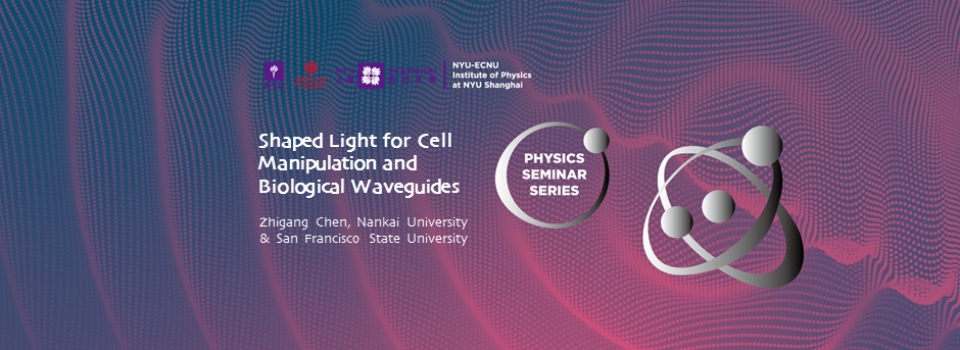
Abstract:
In the past decade, the development of artificial materials exhibiting novel optical properties has become one of the major scientific endeavors. One system of particular interest is with bio-soft-matter, which play a central role in numerous fields ranging from life sciences to chemistry and physics. In this talk, I will provide a brief overview of our recent work on dynamical beam shaping and its applications in optical trapping and manipulation of bacteria and human red blood cells. I will then focus on discussion about our recent work on nonlinear optics with biological suspensions, including self-trapping and guiding of light in colloidal suspensions of cyanobacteria and red blood cells, where the tunable nonlinearity is largely attributed to the optical forces acting on the cells.
Biography:
Zhigang Chen earned his Ph.D. from Bryn Mawr College and did his postdoctoral research at Princeton before joining the faculty at San Francisco State in California. He is currently a specially appointed professor at Nankai University, China. He has published more than 200 papers in refereed journals including the Science/Nature-family journals with an h-index of 48 (according to Web of Sci.). Dr. Chen is a recipient of the Chinese Distinguished Oversea Young Scholar Award, and a Fellow of the Optical Society of America and the American Physical Society. He has served as an editor for several journals including Optics Letters. Science Bulletin, and Advances in Physics X. Apart from being an active committee member for several OSA/SPIE topical meetings, he served as a Program/General Chair for CLEOFundamental Science in 2016/18.
Seminar by the NYU-ECNU Institute of Physics at NYU Shanghai


